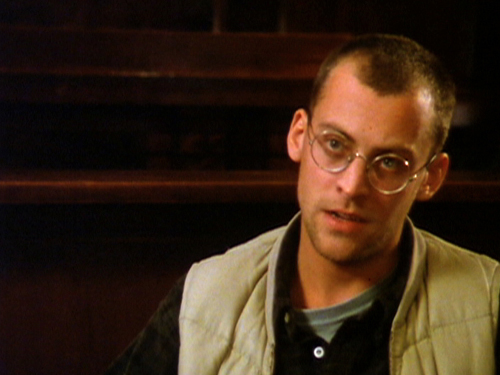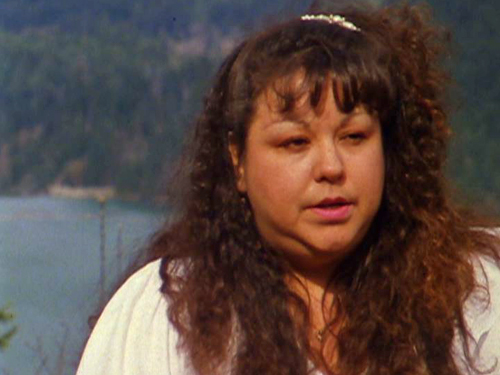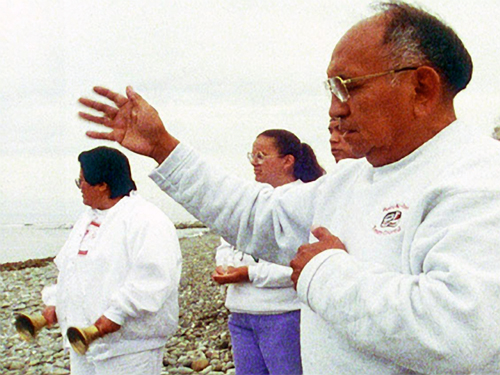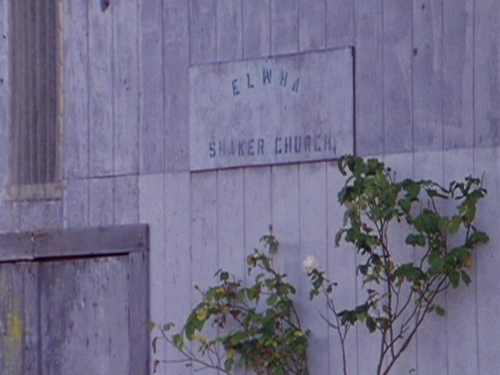By Robert Lundahl
As Jose Ortega y Gasset – a Spanish existential phenomenologist and one of the great philosophical minds of the twentieth century – puts it, man is “a kind of ontological centaur” because he/she is “half immersed in nature, half transcending it”.
In the name of progress, the ideology of modernization demands and justifies the domination of nature to benefit humankind alone.
Thus Hwa Yol Jung of Moravia College writes in the Trumpeter, Volume 10, No 3 (1993).
Unconquering the Last Frontier, about the “Damming and Undamming of the Elwha River,” speaks about the “Ongoing Salmon Crisis” in the Pacific Northwest. The film details how entrepreneurs in the early 20th century sought to dam a river, one that had produced 100 lb. salmon — among the largest in the Lower 48. The motives were power and profit.
Almost one hundred years later, positioned in the corner of the City Council chambers building I began filming a Citizens Advisory Commission meeting, one that would recommend dam removal, and river restoration, or not. The hope was that the genetics of the fish, preserved in hatcheries managed by the State of Washington and by the Lower Elwha Klallam Tribe could be re-introduced, and that these wild-adapted stocks would begin to utilize the spawning habitat above the where the dams once stood.

Phil Johnson, Ph.D. Historian. From Unconquering the Last Frontier, ©2014.
There was a quote by historian Phil Johnson, whom I interviewed in the film, which seemed to resonate with Ortega y Gasset’s. I recall Phil’s words:
“Their conception of progress then was keen, and there was so much around them, so much bounty around them, that it was easy to have that kind of belief, a belief that we could tinker with nature, that we could impound a river that was working just fine for a few thousand years, and then we could artificially spawn the river’s salmon and improve it. And yet 60 – 70 years later there is nothing in that river that would contribute to a subsistence lifestyle, whereas before science, before science improved the river, you had an entire community surviving depressions and recessions, eating foodstuffs from that river for decades, and now we have an entire community that realizes what we have done to the river, we might have to undo.”
The frontier that men and women had subdued in the early 20th century, conquered, in the parlance of the day, would need to be unconquered. Two industrial “high-head” power dams on the Elwha were removed beginning in 2012.
As the last chunks of concrete are hauled out from one of America’s great rivers, I am listening to Naomi Klein’s radio interview about her new book, in Changing Everything: Naomi Klein on Capitalism and Climate Change By the National Radio Project. I was here too reminded what Phil had observed.
Klein’s book postulates that it is the structure of “Capitalism” itself that is endemic to human survival in light of climate change. “When fear like that would creep through my armor of climate change denial I would do my utmost to stuff it away, change the channel, click past it, now I try to feel it. But what should we do with this fear that comes from living on a planet that is dying, made less alive every day? …The real trick, the only hope, really, is to allow the terror of an unlivable future to be balanced and soothed by the prospect of building something much better than many of us had previously dared hope. Because the thing about a crisis this big, this all-encompassing, is that it changes everything.”
Old timers living along the Elwha River would say. The younger generation can’t imagine what the river could be again (once restored) because they have no ability to imagine what it once was. Their “platform” is what they know, what they’ve seen. Klein’s introduction to the radio interview addresses the emotional upheaval many people feel in light of a slow, creeping catastrophe, over which they may feel varying degrees of powerlessness.
But we need not feel powerless. The lessons from the Elwha grow more important with each passing year. Our platform of knowledge based on what we have seen and what we know underestimates the generative potential of the planet.

Rachel Hagaman. From Unconquering the Last Frontier, ©2014.
Rachel L. Hagaman (Kowalski), Economic Development Director, Lower Elwha Klallam Tribe
From Unconquering the Last Frontier. @2014.
Rachel Hagaman (See Video) wrote not long ago sharing a remarkable observation.
Hello Robert…
We are getting ready to go fish for chum salmon. I am sure you have heard by now, the fish are already starting to utilize the habitat up above where the projects used to be located. It is awesome, and it is going to keep getting better. I just want to say that I know in my heart that your film and the work you did had a huge impact on the ways things turned out and I am still very grateful to you for that work you did. Well I should go now, but I am hoping the best for you and yours, and wanted to say hello. thank you again.
Rachel L. Hagaman (Kowalski), Economic Development Director, Lower Elwha Klallam Tribe
Restoring the Elwha River was and is not simply a matter of rebuilding fish stocks, righting a historic wrong, and stimulating the tourist economy. It is about re-building an entire ecosystem, mostly by leaving it alone once the man-made impediments are out of the way. Humanity has often recognized the need to adapt, recognize long term values above short term ones, allow for change, and go forward in new ways. The Lower Elwha people demonstrated remarkable consistency, adaptation, patience, and persistence over 100 years while they fought to survive, and eventually restore the river which had sustained them.
When I first engaged with the Lower Elwha Community, at a “Shake,” an all night spiritual event, Bosco Charles, leader of the Lower Elwha Indian Shaker Church spoke to the crowd. Gesturing toward the hard wooden bench where I was seated, he said, “We have guests here tonight. We’re going to have to open up like we’ve never opened up before.” Here was a guy with a film camera (left in the car) and bushy blond hair, not the usual visitor to the church. Over time, the tribe did open up, tell a myriad of stories which became “Unconquering the Last Frontier.”
Perception is everything.
I learned science does not always provide all the answers. Simpler and slower is often better. What we see from our platform, is not always the whole picture, and almost anything is possible.
Klein speaks of a dichotomy between capitalism and climate. Like most “absolutist” statements, I don’t know if this is true, but I do agree with the later half of the thesis. That we have the possibility to allow the terror of an unlivable future to be balanced and soothed by the prospect of building something much better than many of us had previously dared hope.
That is the lesson of the Elwha River and the Lower Elwha Klallam Tribe.

Bosco Charles, Indian Shaker Church. From Unconquering the Last Frontier. @2014.



